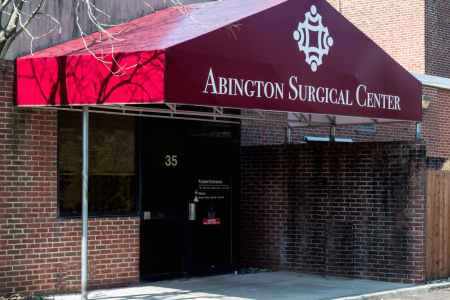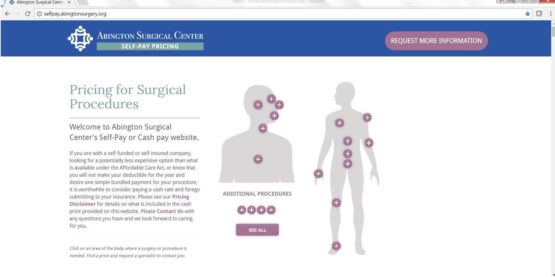Suffering from chronic pain? Using the most advanced techniques to administer injections, board-certified anesthesiologists specializing in pain management enable thousands of patients to lead more active and productive lives with minimal or no pain.
Get Started
To prepare you for your pain procedure at Abington Surgical Center:
- We gather information so that everyone understands your medical situation. Please follow all instructions outlined below under “Pre-Procedure Instructions.”
- We help you understand your insurance coverage and financial obligations, if any, so you don’t get unforeseen financial surprises later.
- We make your procedure experience as emotionally comfortable as possible by clearly explaining everything that will take place before, during, and after your procedure.
- We’re with you every step of the way. We’re in this together!
Pre-Procedure Instructions
1. PRE-REGISTRATION
All patients are required to pre-register for their procedure. Please complete this as soon as possible and at the very latest, ONE WEEK before your procedure date. Pre-registration can be completed by clicking the button below. Please have the following information ready as it will be necessary to complete the pre-registration:
- Password for new patient registrations is ASC267NEW
- A list of current medications, over the counter medications, allergies/sensitivities, medical insurance and physician names and phone numbers
- Your communication preferences. Please know that texting is the preferred method of communication, however, E-mail and phone communication are perfectly acceptable
Your communication preferences are very important as they determine how you will be contacted the business day prior to your procedure (after 12pm) to confirm your arrival and procedure time in addition to any other specific instructions.
Additional important notes regarding pre-registration
- If your health history requires updating or correcting, please login,make the changes and resubmit. Please call us at 267-960-1413 if you require login information
- If you do not have internet access, we ask that you first attempt to have a family member or friend help you. If you are unable to find other assistance, please call 267-960-1413 to be added to our help list. We will contact you in a timely manner to assist with the pre-registration process.
- If you have technical difficulties, please call Simple Admit Customer Service at 877-848-4726
What to Expect
Click on the links below to find out more about your visit.
One business day before your scheduled procedure, you will receive a communication after 12pm (either text, E-mail or phone call based on the communication preferences selected during pre-registration) with instructions to arrive 30-60 minutes in advance of procedure. This is based on the type of anesthesia to be administered and physician preferences. Late arrival may cause scheduling at end of day or rescheduling for another day. Phone cancellations must be made 24 hours in advance.
Our entire staff will work with you to ensure your procedure goes smoothly.
You can expect to:
- Change into patient gown
- Walk from pre-op room to operating room with nurse
- Be assisted by nurse onto X-ray table where you will lie on your stomach
- Undergo injection under fluoroscopic (X-ray) guidance while being monitored for blood pressure and oxygen saturation
- Be transported by nurse to Recovery Room on recliner or stretcher
- Receive instructions about post-procedure care
There can be possible side effects, including:
- Red-hot, flushed face
- Headache: Drink caffeinated beverages. Call pain management office if you have severe positional headache.
- For Diabetics: Increase in blood sugar and frequent urination
Treatment Options
If you are suffering from any of the chronic pain conditions listed below, Abington Surgical Center’s board certified anesthesiologists offer you a wide variety of treatment options.
Most commonly treated conditions:
- Persistent back or neck pain
- Discogenic pain
- Leg or arm pain
- Post-herpetic neuralgia (Shingles)
- Work-related injuries
- Multiple sclerosis, stroke, or cerebral palsy
- Complex regional pain syndrome (RSD)
- Cancer pain
- Vertebral fractures
- Abdominal or pelvic pain
Interventional techniques:
- Epidural steroid injections
- Facet joint/median branch blocks
- Trigger point injections
- Occipital nerve blocks
- Rhizotomy (radiofrequency)
- Cryoneurolysis
- Sacroiliac joint injections
- Sympathetic nerve blocks
- Spinal cord stimulators
- Implantable pain pumps











